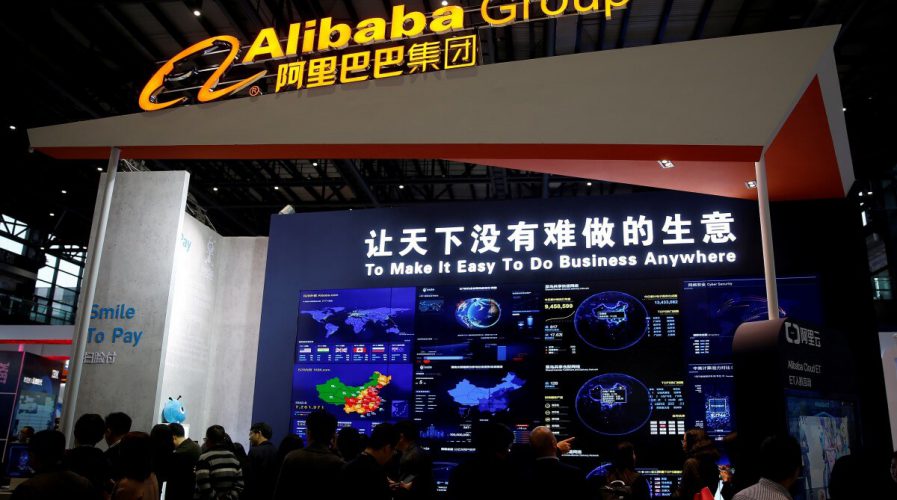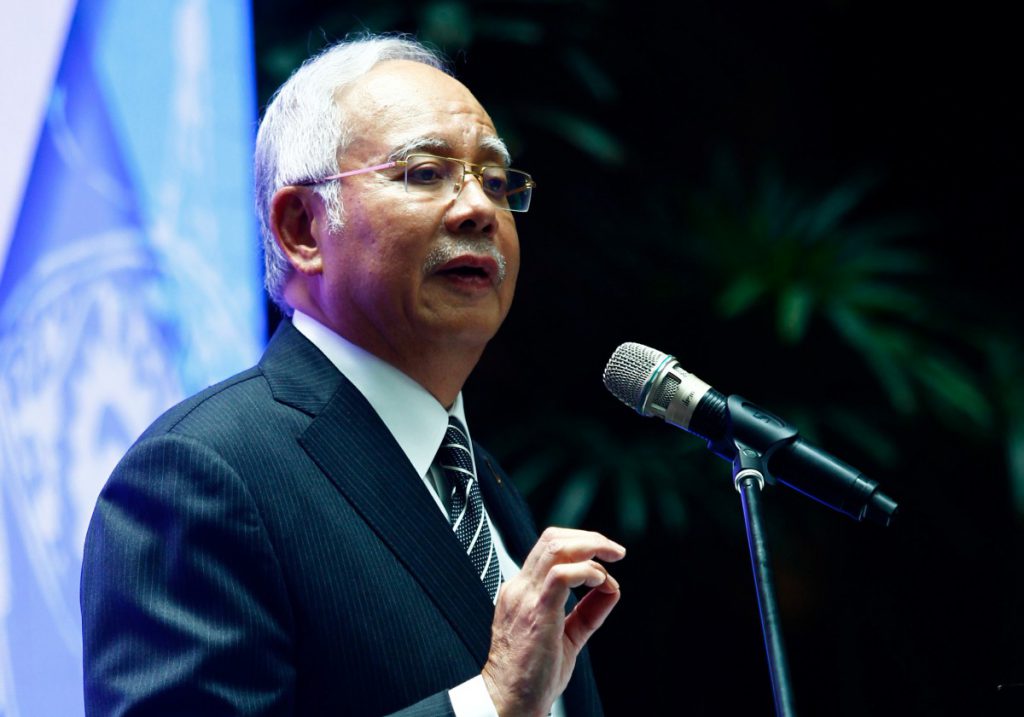
A sign of Alibaba Group is seen during the third annual World Internet Conference in Wuzhen town of Jiaxing, Zhejiang province, China. Source: Reuters
Malaysia tapped to be new Alibaba regional distribution hub
CHINESE e-commerce giant Alibaba Group Holding Ltd plans to set up a regional distribution hub in Malaysia to cater to its fast-growing business in the region, two sources aware of the discussions said.
The distribution hub is part of Malaysia’s Digital Free Trade Zone (DFTZ) launched on Wednesday at the Global Transformation Forum 2017 by Malaysia’s Prime Minister Najib Razak and Alibaba executive chairman Jack Ma.
Jack Ma, Usain Bolt and Richard Branson among the speakers at #GTF2017 in KL. pic.twitter.com/KKnA6xyRYo
— Sumisha Naidu (@SumishaCNA) March 22, 2017
“The development of the Digital Free Trade Zone is a world’s first,” Najib declared.
“The initiative is part of the recently launched National E-Commerce Strategic Roadmap which aims to double e-commerce growth from 10.8 percent to 20.8 percent by 2020.”
The hub would be located within KLIA Aeropolis, a 24,700-acre (9995.7ha) development led by airport operator Malaysia Airports Holdings Bhd (MAHB) that is expected to generate more than RM7 billion (US$1.58 billion) worth of domestic and foreign investments.
“KLIA Aeropolis includes many components and the DFTZ is likely a new component to be added,” a source said.

Ma was appointed as Malaysia’s digital economy adviser during Najib’s official trip to China in November. Source: Flickr/UNclimatechange
The hub will be set up with the help of Malaysian state-linked agencies. It was not clear whether Alibaba would invest in the project.
“Kuala Lumpur International Airport (KLIA) has existing facility for Alibaba Group to pilot their distribution services here,” one source said.
“If (Alibaba) decide to expand in the future, there is the option to build more on other (undeveloped) sites in KLIA Aeropolis.”
Najib and Ma announced their plans for the DFTZ at the Global Transformation Forum 2017 in Kuala Lumpur.
The forum brings together luminaries from across many industries, including big names such as Virgin head honcho Richard Branson and star athlete Usain Bolt, to a single platform to share ideas and recent innovations,
Najib appointed Ma as his government’s digital economy adviser during an official trip to China in November.
Malaysian media reported Ma, whose Alibaba owns Chinese online shopping business Taobao, would help steer Malaysia’s e-economy development with the implementation of online payment and banking.
This would mark Alibaba’s first investment in Malaysia. The company invested US$1 billion last year to control Singapore-based e-commerce platform Lazada, Southeast Asia’s largest online shopping platform. It also increased its shareholding in Singapore Post to 14.4 percent from the 10.2 percent acquired in 2014 and bought a 20-percent stake in Thai e-payment service Ascend Money.

Malaysia’s Prime Minister Najib Razak attends an event in Kuala Lumpur, Malaysia. Source: Reuters.
“Many people see Malaysia as an emerging hub next to Singapore. Malaysia may not be able to take all of Singapore’s business, but it is a good choice (logistically),” one source said.
Razak presented his keynote address to the audience in the KLCC Plenary Hall, noting the government “[expects] a slightly higher figure this year, and for it (growth) to rise in 2018.”
“We have kept inflation and unemployment low, and have been acclaimed by global institutions such as the World Bank and the IMF (International Monetary Fund) for the reforms we have undertaken.”
SEE ALSO: Bigger China-Malaysia partnerships on the horizon as Jack Ma appointed digital economic adviser
Ties between Malaysia and Beijing have blossomed in recent months with a surge of investments from China. China agreed to buy assets of troubled state fund 1MDB for US$2.3 billion in December 2015. Najib returned from November’s Beijing visit with 14 agreements amounting to US$34.4 billion, which included an agreement to buy four Chinese naval vessels and collaboration to build rail projects in Malaysia.
Plans to establish the DFTZ were announced in the national budget last October. – Reuters
Additional reporting by Samantha Cheh
READ MORE
- Safer Automation: How Sophic and Firmus Succeeded in Malaysia with MDEC’s Support
- Privilege granted, not gained: Intelligent authorization for enhanced infrastructure productivity
- Low-Code produces the Proof-of-Possibilities
- New Wearables Enable Staff to Work Faster and Safer
- Experts weigh in on Oracle’s departure from adland
